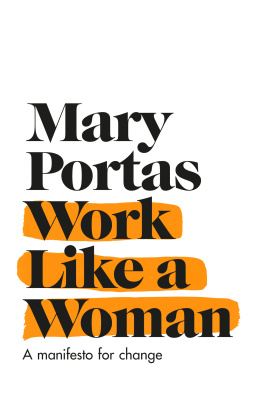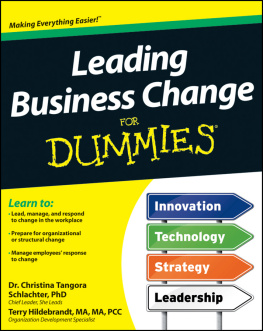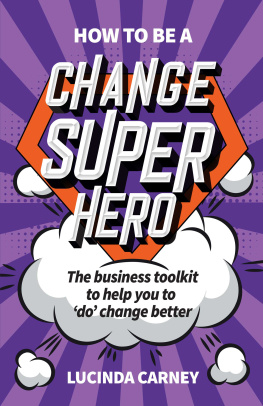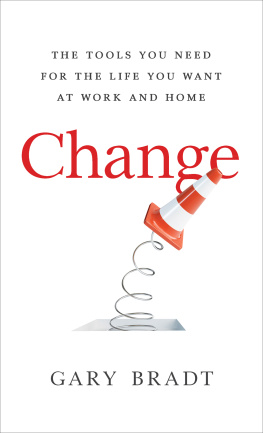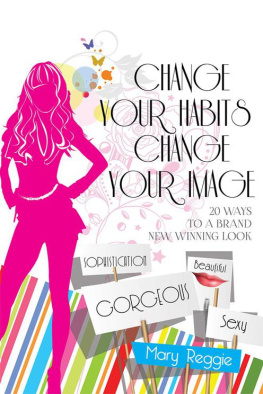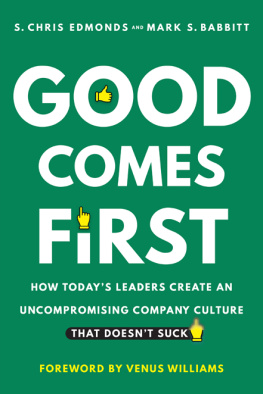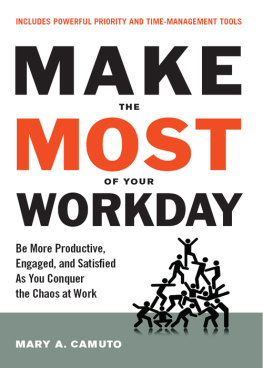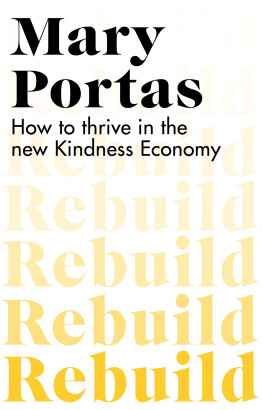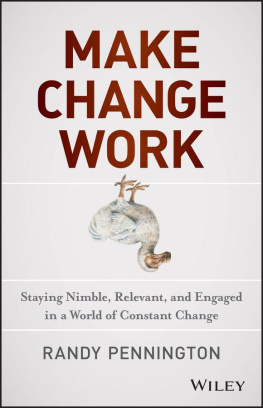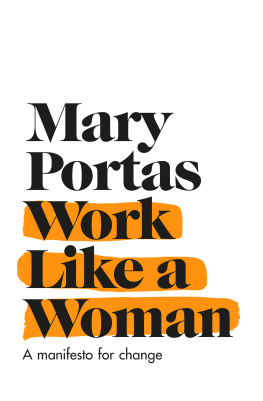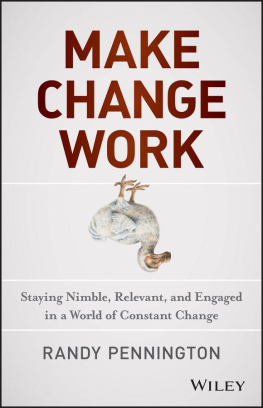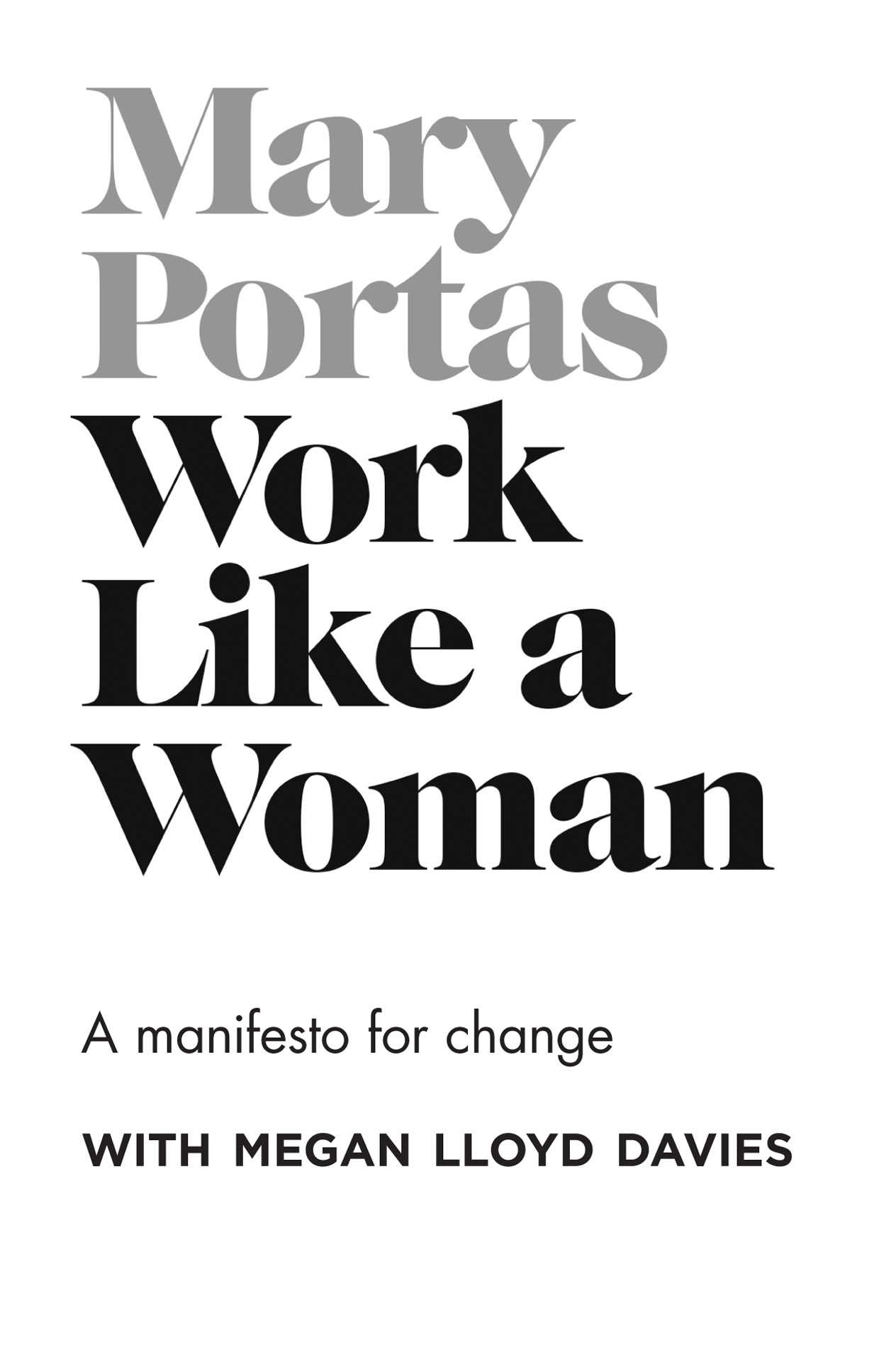Also by Mary Portas
HOW TO SHOP
SHOP GIRL
For more information on Mary Portas and her books,
see her website at www.maryportas.com
TRANSWORLD PUBLISHERS
6163 Uxbridge Road, London W5 5SA
www.penguin.co.uk
Transworld is part of the Penguin Random House group of companies whose addresses can be found at global.penguinrandomhouse.com
First published in Great Britain in 2018 by Bantam Press
an imprint of Transworld Publishers
Copyright M Portas LLP 2018
Illustrations copyright Ryan Hodge 2018
Cover design by Sarah Whittaker
Mary Portas has asserted her right under the Copyright, Designs and Patents Act 1988 to be identified as the author of this work.
Come to the Edge by Christopher Logue from New Numbers, reprinted by permission of Faber and Faber Ltd.
Every effort has been made to obtain the necessary permissions with reference to copyright material, both illustrative and quoted. We apologize for any omissions in this respect and will be pleased to make the appropriate acknowledgements in any future edition.
A CIP catalogue record for this book is available from the British Library.
Version 1.0 Epub ISBN 9781473555648
ISBN 9780593079980
This ebook is copyright material and must not be copied, reproduced, transferred, distributed, leased, licensed or publicly performed or used in any way except as specifically permitted in writing by the publishers, as allowed under the terms and conditions under which it was purchased or as strictly permitted by applicable copyright law. Any unauthorized distribution or use of this text may be a direct infringement of the authors and publishers rights and those responsible may be liable in law accordingly.
1 3 5 7 9 10 8 6 4 2
PREFACE
Heres to strong women: may we know them, may we be them, may we raise them.
The subject of women and the culture we work in exploded into the public consciousness as I was writing this book. Sexual harassment, the gender pay gap: skeletons have come tumbling out of the closet during 2017 and 2018.
Its clear that work is working against women, even the most successful.
Its not outright discrimination any more. (Usually.) In fact, weve got enough of a stake in the workforce today for many of us to believe that women are doing okay. Were given jobs, earn about the same as men, until we have children, and some of us get to the top.
But the subtle barriers facing us range from our often doing jobs that are financially undervalued, to workplaces that dont truly accommodate our roles as carers, or a ceiling that is all too often not made of glass but concrete.
And fifty years after we entered the paid workforce in large numbers, we are finally beginning to feel less grateful about the progress weve made and are starting to get angrier about how much further we have to go before we achieve parity with men.
I welcome this. We need to be angry.
We are as strong, capable and talented as men, and need to start pushing for a faster pace of change to allow us to realize our true potential. Who knows where that will take us individually?
But this issue is about more than each one of us. Its about something far bigger collectively. Its about power. And the leaders who make the decisions that intimately affect our day-to-day lives.
Where power once lay in the hands of kings and bishops, today its with the leaders of politics, business, technology and finance. These are the people whose decisions dictate whose pocket will be worse hit by budget cuts, the pensions and prospects of millions of workers, and which war we will fight in.
And women arent making these decisions because we arent at the top in anything like equal numbers to men.
Just two out of sixty-one British prime ministers have been women. Theres never been a female governor of the Bank of England since it was set up in 1694. Just one of the nine members of its current committee is a woman. A mere six of our 100 biggest companies are headed by a woman.
This top-line data alone tells us we havent got a foothold in the door of power. Its more a toe over the threshold.
It means were working and living in a system that doesnt reflect the things we often want, or our priorities.
Meanwhile self-serving competition, arrogance and focus on individual wins over the collective good are sadly too prevalent in the behaviour of many of our leaders today. This is why we have to make work more equal, allowing women to rise and take their equal place at the top of power structures. Creating a better balance between men and women will help us to start to shape a future that truly reflects all our needs, thoughts and considerations together.
Instead of suppressing womens talents, values and expertise, putting essentially feminine qualities like empathy, collaboration and flexibility, strength, courage and resilience at the heart of the system will create a radical shift in how we work and live.
Thats not to say all women and men necessarily have or dont have these qualities. Each one of us embodies a million different aspects of the complicated kaleidoscope that is personality. But, like it or not, certain qualities have traditionally been pigeonholed as masculine and feminine so thats my starting point.
And I believe all of us would benefit from seeing more of whats considered feminine valued at work because women may be at the sharper end of this, but many men are affected too.
Simply tweaking how things stand with a leadership scheme here or a pay rise there will not create the kind of change we need. Neither will paying public lip service while keeping a tight private grip on the status quo.
There must be a radical re-evaluation of how we work and a cultural shift at the heart of it.
Thats why weve got to work together.
Work is central to all our lives but only half of us are making the most of it and were all losing out because of that. Its time to find a new way to work that will help us create a better future for all of us and our children.
It is time for change.
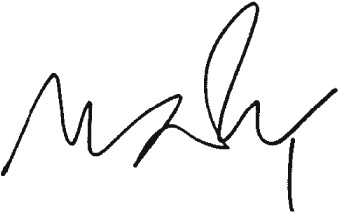
1
Is Work Working Against Us?
The secret of change is to focus all of your energy, not on fighting the old, but on building the new. Socrates
Im sitting in the Arco Caf in Knightsbridge and dont know which is more overpowering: the smell of fat or the reek of fag smoke.
Its 1981; Im twenty-one and work as a window dresser at Harrods.
I cant believe Elaine didnt get the job, Fiona says. Weve got to do something.
Fiona, who works with me on the back windows, is outraged. Our colleagues Elaine and Roger both went for a promotion and he got it. Theyre equally talented but we thought Elaine would get the job because shes been at Harrods far longer than Roger and thats usually how things work.
Weve got to go on strike or something, Fiona hisses. Demonstrate. Contact our union.
I stare at her. The only women I know who demonstrate are the ones at Greenham Common Womens Peace Camp, who chain themselves to fences in protest against nuclear arms. It doesnt look very comfortable.
Dont you see, Mary? Fiona says, with a withering look. If we dont do something then none of us stand a chance. The men will always get the jobs.

